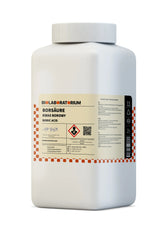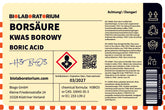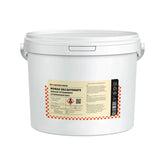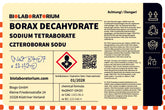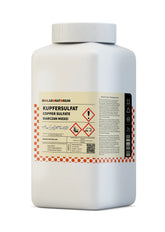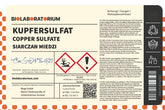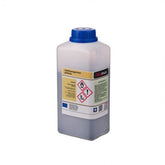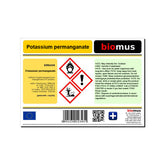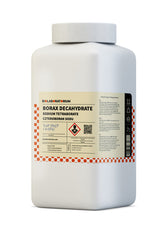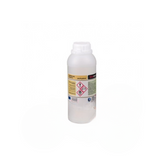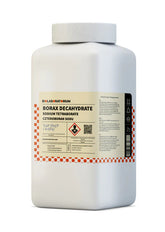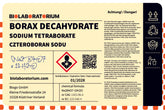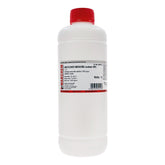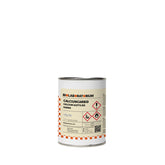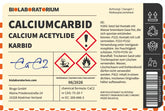Zinc sulfate – The versatile key compound in chemical production and analytics
Zinc sulfate, also known as zinc vitriol or white vitriol, is an extremely important chemical compound with a variety of applications in industry, agriculture, and even medicine. As one of the key compounds in chemical production and analysis, zinc sulfate plays a crucial role in numerous processes and products that enrich our daily lives.
The properties of zinc sulfate
Zinc sulfate is a crystalline salt composed of zinc and sulfur. It is highly soluble in water and forms a colorless, clear solution. Due to its chemical structure and properties, zinc sulfate is used in many areas.
The main properties of zinc sulfate include:
- High solubility: Zinc sulfate dissolves easily in water, making it suitable for many applications.
- Chemical stability: The compound is relatively stable and resistant to decomposition.
- Versatile reactivity: Zinc sulfate can react with a variety of other chemicals to form new compounds.
- Essential nutrient property: Zinc is a vital trace element for humans, animals, and plants.
These properties make zinc sulfate an extremely useful and versatile raw material in the chemical industry.
Industrial applications of zinc sulfate
Zinc sulfate is used in numerous industrial processes. Some of the most important application areas are:
Electroplating and metal processing
In electroplating, zinc sulfate is used as an electrolyte in zinc baths to coat metal surfaces with a zinc layer. This improves corrosion protection and surface treatment of metals.
Agriculture and fertilizer production
Zinc sulfate is an important component of fertilizers because zinc is an essential trace element for plant growth. It is used in both mineral and bio-complex fertilizers.
Chemical synthesis
In the chemical industry, zinc sulfate serves as a starting material for the production of other zinc compounds such as zinc oxide or zinc chloride, which are needed in many production processes.
Medicine and pharmacy
In medicine, zinc sulfate is used as a dietary supplement because zinc is essential for the human body. It is also used in ointments and creams.
Analytics and laboratory technology
In chemical laboratories and analytical procedures, zinc sulfate is often used as a reagent to perform certain analyses or separations.
Textile finishing
Zinc sulfate plays an important role in dyeing and finishing textiles by being used as a mordant or fixing agent.
This variety of applications makes zinc sulfate an extremely valuable raw material in the chemical industry.
The production of zinc sulfate
Zinc sulfate is industrially produced by various methods. The most common methods are:
Direct synthesis from zinc and sulfuric acid
Elemental zinc is reacted with concentrated sulfuric acid, producing zinc sulfate as the product.
Dissolution of zinc oxide in sulfuric acid
Zinc oxide, obtained from zinc concentrates, can be dissolved in sulfuric acid to produce zinc sulfate.
Recycling of zinc waste
Zinc sulfate can also be obtained by dissolving and purifying zinc waste, such as electroplating sludges.
Depending on the starting material and manufacturing process, the quality and purity of zinc sulfate can vary. However, modern production facilities ensure that high-purity grades are available for the diverse applications.
The role of zinc sulfate in technical chemistry
In addition to the already mentioned areas of application, zinc sulfate also plays an important role in technical chemistry. Here are some examples:
Water treatment and wastewater purification
Zinc sulfate is used in sewage treatment plants and water treatment facilities to remove heavy metals and other contaminants from water.
Fire extinguishing systems
Zinc sulfate solutions are used in special fire extinguishing systems because zinc has a high heat capacity and can smother flames.
Catalysts and auxiliaries
In chemical synthesis, zinc sulfate serves as a catalyst or auxiliary substance to accelerate or support certain reactions.
Pigments and dyes
Zinc sulfate is a component of pigments and dyes used in the paint, coatings, and plastics industries.
These examples show how versatile zinc sulfate can be used in technical chemistry and the key role it plays in numerous industrial processes.
Conclusion
Zinc sulfate is an extremely important chemical compound with a wide range of applications in industry, agriculture, and medicine. Its excellent properties such as solubility, stability, and reactivity make it an indispensable raw material in chemical production and analytics.
From electroplating to fertilizer production to water treatment – zinc sulfate is present in numerous industries and significantly contributes to the development of innovative products and processes. Its key role in technical chemistry underscores the importance of this compound for our modern life.
Given the diverse applications and the increasing demand for chemical products, zinc sulfate will continue to play an important role in industrial production in the future. Innovative manufacturing processes and continuous research will help to further improve the performance and sustainability of this key compound.

